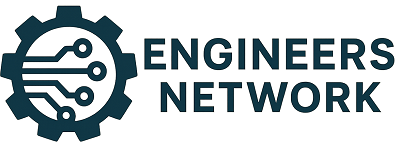Blockchain has been hailed by some as the future of the Internet, while others are less sure. Do you know what blockchain is? Is it a replacement for internet protocols like TCP/IP? And what does this mean for how we use Bloblockchain.com now?
Why do we have the internet at all and how it works
When you send an email from your PC to another networked computer, the data is broken up into packets that are then dispatched by your mail server to a router. That router sends them over the Internet to another router, which does the same. The packets travel across networks and eventually arrive at their destination, where they are reassembled into the message you sent.
This means that your data is transferred from one place to another along the most efficient path possible, which can be thought of as a road map through the internet traffic system. If you send an email to New York and I live in London, it would make sense to take a route up north first and then down south rather than going directly from London to New York.
This is all managed by a set of rules that govern how data is sent and received, known as the internet protocol suite or TCP/IP for short. This isn’t a perfect system; it’s rather complicated and can be difficult to control if you want direct access to the raw data being sent and received.
Can blockchain work without Internet?
A more elegant solution to internet infrastructure is blockchain, originally developed as part of the digital currency bitcoin. In a nutshell, it allows computers to send data from one source directly to another securely, no matter how large or geographically dispersed the machines are, without any need for third-party systems.
The only problem is that this can’t work outside the network, and there is no way to connect the blockchain to a conventional internet connection. For example, if you were in space with your satellite and computing systems, you would be unable (currently) to access the Internet.
Blockchain also has another specific downside – it uses an awful lot of processing power and storage space for the computers to keep track of what’s going on. This leads to both higher costs and technical limitations that have prevented blockchain from becoming a serious contender for mainstream internet use.
Is blockchain just for cryptocurrencies?
The future of the web could lie in blockchain technology, but not with bitcoin: it’s now being used by banks and big businesses as a means of creating transaction ledgers that are almost impossible to tamper with.
Why not use blockchain instead of the Internet?
One reason is bandwidth: you need a high-speed connection to send and receive large amounts of data quickly, which can be an issue if you rely on orbital satellites in space or want to speed things up.
Another issue is the hardware: blockchain does not have a fully stable or reliable architecture for high-performance computing, not outside the cryptocurrency world.
The consequence of these rules
Your data can arrive at its destination out of order or with missing packets, which can cause problems when trying to reconstruct the original message. For example, gaps in the sequence numbers mean you might have to guess what was there by using contexts such as line breaks and punctuation.
This is the same whether you’re sending an email through Outlook or visiting a website like Google; it’s all just data, and any computer system can work with the underlying information regardless of what it looks like. The downside to this approach is that it becomes more difficult to add new features and applications without breaking older ones, affecting everyone since you have no way to tell what’s in a message until you deconstruct it.





Leave a Reply